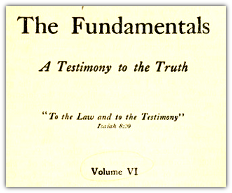I have known many folks who embrace what I call “folk religion.” It runs something like this: “I want my family (and myself) to be nice, good, and decent. Christianity is what makes people nice, so I will choose to be a Christian and rear my children as Christians. The theology doesn’t matter, what matters is how we live and treat others.”
This belief system boils down to using the Kingdom of God. Using this reasoning, our faith exists to help us and our children become kind and honest people—a civilizing, positive influence. Hopefully our faith will keep us off of drugs, keep us from being promiscuous, help us avoid excessive alcohol, and help us avoid dishonest gain. We will see our kids grow up to become responsible, family-oriented, and self-supporting.
We all desire our children to turn out well, and to live decent lives ourselves. This is not a bad secondary goal. We should aim for that. But if this is why we call ourselves Christians, we are in trouble. Faith in Jesus becomes a means to an end, not an end in itself. Our primary goal should be to be in right relationship with God.
When folks use Christianity in this manner, they will eventually be confronted with the rude awakening that some who profess faith in Jesus are not all that wonderful. On the other hand, at times, those who profess other faiths or no religion at all are sometimes quite kind and generous.


 Read
Read  (
(
 (Read
(Read 
Discussion